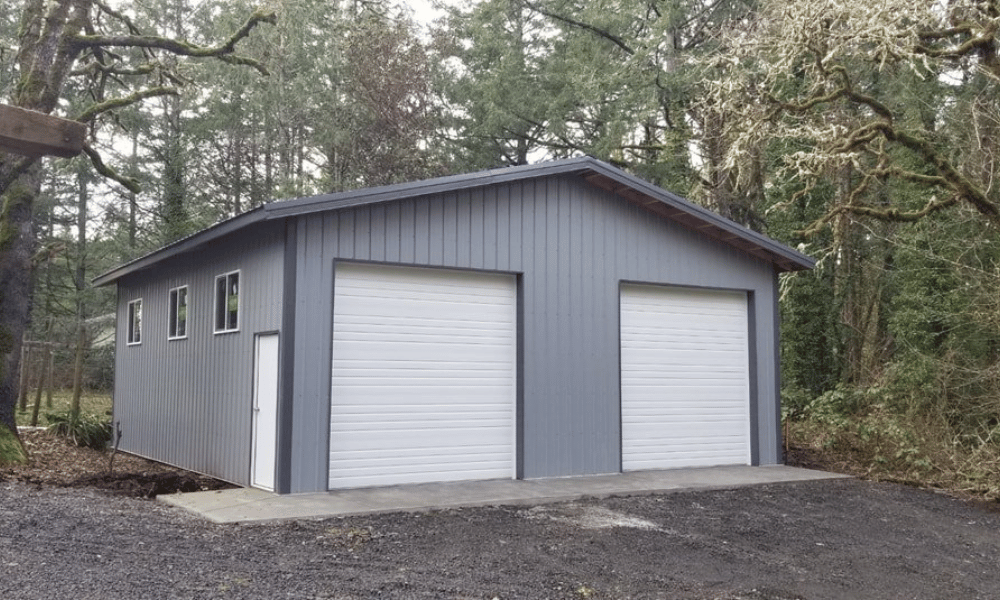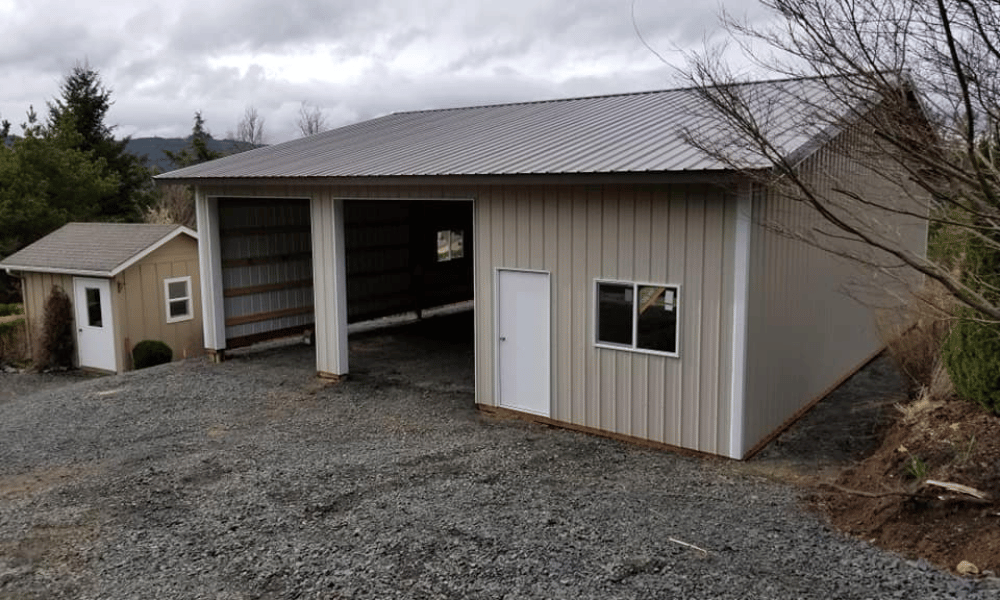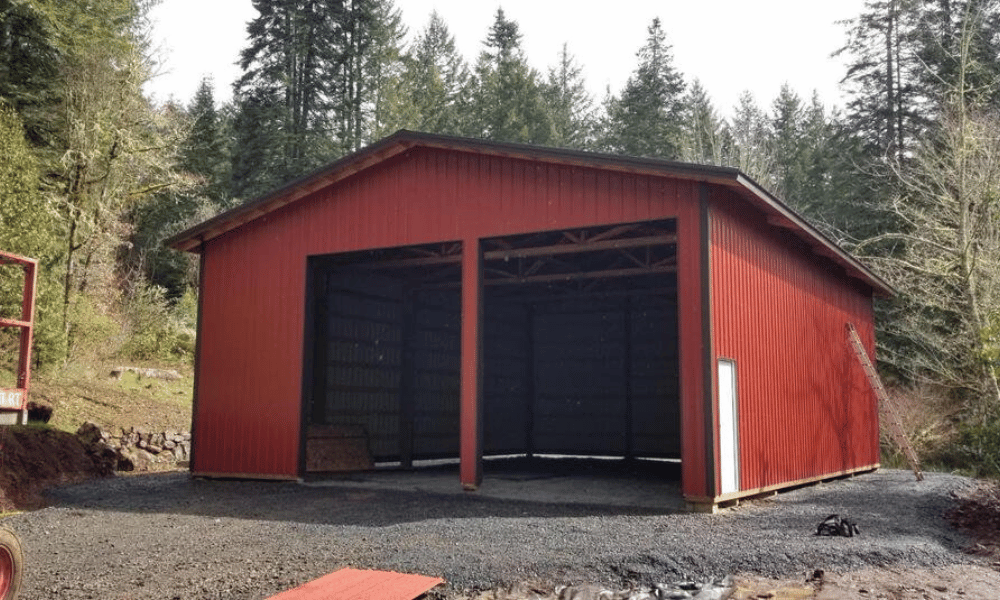Introduction
Creating an inventory system for easy access in your pole barn isn't just a smart choice; it's a necessity. Picture this: you step into your pole barn, and instead of chaos, you encounter a well-organized space where every tool, material, and product has its designated spot. Sounds dreamy, right? Well, it can be your reality with the right inventory system in place. In this extensive guide, we will dive deep into the nitty-gritty of establishing an effective inventory system tailored specifically for your pole barn. We'll cover everything from understanding what an inventory system is to choosing the best organizational tools and techniques that suit your needs.
Understanding the Basics of Inventory Systems
What is an Inventory System?
An inventory system is essentially a method of tracking items within a specific space—in this case, your pole barn. It allows you to know exactly what you have on hand, where it's located, and how much of each item is available. A robust inventory system not only saves time but also reduces costs associated with overbuying or losing items.
Why You Need an Inventory System in Your Pole Barn
Having an organized inventory isn’t just about aesthetics; it’s about efficiency. Do you often find yourself searching high and low for a tool or material? An effective inventory system can eliminate that frustration. You'll spend https://rentry.co/hvredgx6 less time digging through stacks of boxes and more time focusing on what truly matters—your projects.
Setting Goals for Your Inventory System
Define Your Objectives
Before diving into the setup process, it’s crucial to outline what you want to achieve with your inventory system. Want to minimize clutter? Increase efficiency? Save money? All these goals will help shape how you organize your pole barn.
Consider Your Space Limitations
Your pole barn's size and layout will significantly influence how you create your inventory system. Is it spacious with ample room for shelving? Or is it smaller and requires more vertical storage solutions? Understanding these limitations will guide your decisions as you proceed.
Choosing the Right Tools for Your Inventory System
Shelving Units and Racks
Investing in high-quality shelving units can make or break your organization efforts. Look for adjustable shelves to accommodate various item sizes.
Benefits of Open Shelving vs. Closed Cabinets
- Open Shelving: Offers visibility at a glance. Closed Cabinets: Provides protection from dust and damage.
| Type | Pros | Cons | |-----------------|--------------------------|----------------------| | Open Shelving | Easy access | Can get dusty | | Closed Cabinets | Cleaner look | May require keys |
Storage Bins and Containers
Using bins can help keep similar items together while allowing easy identification. Label each bin clearly to streamline access.

Best Practices for Choosing Containers
- Opt for stackable bins. Use transparent containers when possible.
Organizational Techniques for Your Pole Barn
Categorization: The Key to Efficiency
One of the main pillars of creating an effective inventory system is categorization. Group similar items together—tools with tools, materials with materials—to make locating them easier.
Implementing Color-Coding Systems
Color-coding can add another layer of organization to your pole barn inventory system. Assign different colors for different categories or usage levels.
Utilizing Vertical Space Effectively
Don't underestimate the power of vertical storage! Install pegboards or wall-mounted racks to maximize every inch of space available in your pole barn.
Creating an Inventory List
Digital vs. Physical Lists: What's Best?
While physical lists are straightforward, digital options provide additional advantages like easy updates and backups. Consider using spreadsheet software or dedicated inventory management apps designed specifically for this purpose.
How to Create Your Initial Inventory List
Start by listing all current items in your pole barn. Include categories, quantities, location (where they’re stored), and any other relevant notes. Regularly update this list whenever new items are added or removed.Implementing Regular Checks
Schedule Routine Inventory Audits
Establishing a regular auditing schedule ensures that discrepancies between what's on paper (or digital) match what's physically present in your pole barn.
Frequency Recommendations
- Monthly checks may suffice for small inventories. Weekly checks are ideal if you're frequently adding/removing items.
Tips for Maintaining Your Inventory System
Consistency is Key
Once you've established your system, stick to it! Inconsistencies can lead back to chaos—so make sure everyone who uses the pole barn understands the organizational structure you've implemented.
Continually Improve Your Process
Don’t shy away from tweaking systems as needed! As projects evolve or new items come into play, adapt your approach accordingly to maintain optimal efficiency.
Common Challenges You May Face
Overcoming Clutter Buildup
Clutter tends to accumulate over time despite our best efforts at organizing; however, adopting a "one-in-one-out" policy can help mitigate this issue effectively.
Dealing with Unused Items
Every now and then, take stock of unused items taking up valuable space in your pole barn; consider donating or discarding them if they no longer serve a purpose!
Incorporating Technology Into Your Inventory Management
Software Solutions Ideal for Pole Barns
Consider utilizing simple software solutions such as:
- Inventory Management Apps: These can offer features like barcode scanning that simplify tracking. Spreadsheets: A straightforward option allowing custom formulations suited precisely to individual needs.
Creating Visual Aids
Signs & Labels
Using clear signage within the pole barn not only aids in navigation but also helps remind users where everything belongs—a simple yet effective tactic!
Creating an Inventory System for Easy Access in Your Pole Barn
The heart of any successful organization effort lies within its ease of access! By incorporating strategies like labeling systems alongside optimized shelving arrangements tailored specifically towards enhancing accessibility within these spaces—creating seamless interactions becomes second nature!
FAQs About Creating an Inventory System for Easy Access in Your Pole Barn
1. What type of shelving works best in a pole barn? Shelving units made from metal or treated wood are generally durable enough for outdoor conditions while still providing adequate support for heavy tools or materials.

2. How often should I update my inventory list? Aim to update it at least monthly, particularly after significant changes occur such as acquiring new tools or supplies!

3. Can I use mobile apps instead of physical lists? Absolutely! Many apps offer features like barcode scanning which greatly enhance efficiency when managing larger inventories!
4. What’s the easiest way to categorize my tools? Group them based on their function (e.g., gardening tools versus construction tools) which simplifies both retrieval during usage as well as routine audits!
5. Should I invest in clear bins for storing smaller parts? Yes! Clear bins allow quick identification without opening each one—which saves significant time during busy workdays!
**6. How do I prevent clutter from building up over time again? Implement regular clean-up days along with consistent adherence towards maintaining organizational strategies established previously—this keeps things manageable long-term!
Conclusion
Creating an inventory system for easy access in your pole barn doesn't have to feel overwhelming; rather it should be viewed as a rewarding project yielding considerable benefits down the line! By following these outlined steps—from selecting appropriate storage solutions through implementing regular audits—you'll be well-equipped toward achieving maximum efficiency while minimizing clutter! So roll up those sleeves; let’s get started on transforming that chaotic space into something functional today!